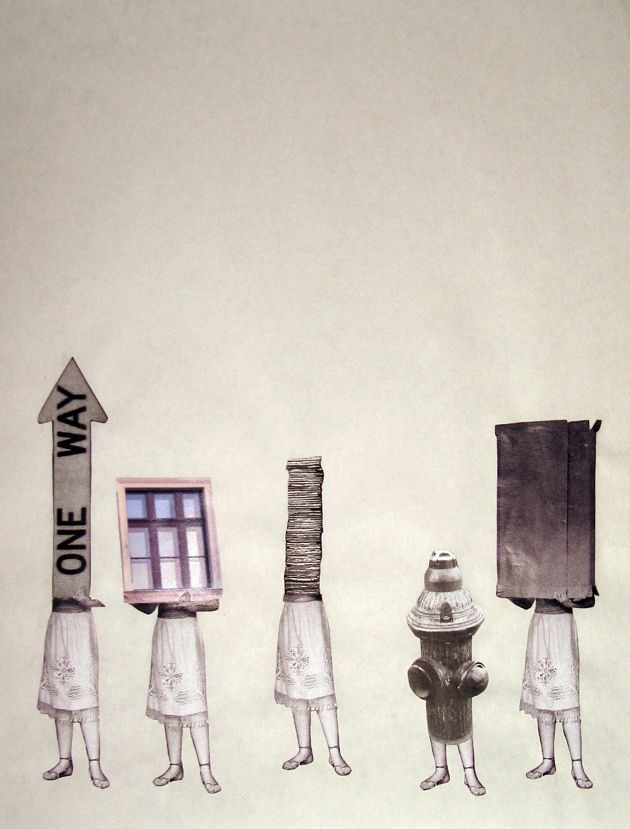Robert Krulwich
Problem solved. They walk up the block holding hands.
Most (and Least) Important: This is both. The most and the least important event I witnessed in 2012. I’m walking past a school. Two girls, maybe six years old, wearing parkas, carrying bookbags, come flying out the school door, step in front of me close enough for me to hear, and one of them leans toward the other says says, “What if you’re a serial killer? Who’s going to be your friend then?” I turn. The two girls are weighing this question. Having friends—this is a thing they know. Everybody needs one, even the nastiest among us, but this is a toughie. They stop to mull: Who might like a serial killer? “Maybe…” says the second girl, “other serial killers?” They look at each other, uncertain. (Not a big enough pool? Is that what they’re thinking?) Then the first girl says, “I know!” “What?” says the second. “How about just…killers?” More to choose from! They hug. Problem solved. They walk up the block holding hands. Friends are the solution to everything. This is their news. This is what they know.
Robert Krulwich is the science correspondent at NPR.
Radhika Jones
Now Obama is a two-term president with major health-care reform under his belt.
Most Important: The Supreme Court ruling on the Affordable Care Act. We’ll never know what would have happened to Obama’s prospects for re-election had the act been overturned. But I do know that my dear friend with a serious pre-existing condition shed tears of relief that day, knowing she wouldn’t be refused coverage in the future. And now Obama is a two-term president with major health-care reform under his belt.
Least Important: The panic over the end of the Twinkie. Twinkies last forever. There’ll be the apocalypse, and then just a bunch of cockroaches and Twinkies.
Radhika Jones is the executive editor at TIME.
Anthony Doerr
We watched four presidential debates in which no moderator thought to even mention global warming.
Most Important: Um, November was the 333rd month—in a row—in which global temperatures surpassed the 20th-century average. 2012 is statistically guaranteed to set an all-time high temperature record for the lower 48. But, don’t worry, on a planet where fossil fuels underpin every single economy, developing or developed, and in a year we elected a commander-in-chief to run the Pentagon, the single largest user of fossil fuels in the world, we watched four election debates in which no moderator thought to even mention global warming. Whoops!
Least Important: Everything else.
Anthony Doerr is the author of four books: The Shell Collector, About Grace, Four Seasons in Rome, and most recently, Memory Wall.
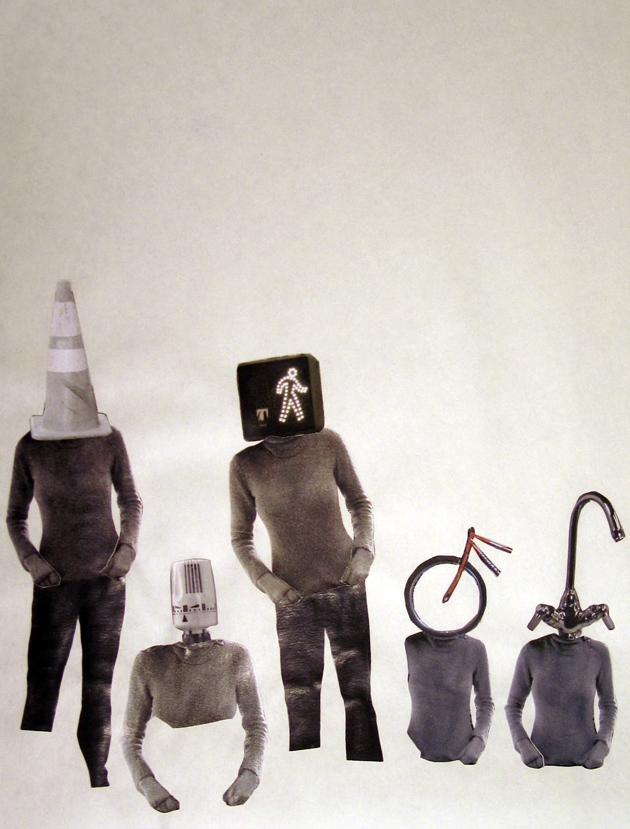
Dave Bry
This is important to me personally, because I have always hated the word “horny.”
Most Important: The re-election of Barack Obama as president. Because now America’s first black president is a two-term president, and so has achieved success vs. failure in that one metric at least. And it’s good for the world if the first black president is seen as a success. Also, the election was a healthy confirmation of Nate Silver’s math-and-science based polling methods—a refutal of the apocalyptic poetry and conspiracy theories being espoused by the loudest, most influential voices on the right. I mean, I like apocalyptic poetry and conspiracy theories a lot, but I prefer them in the context of rap records or science-fiction movies.
Least Important: The entrance into the lexicon of the term “thirsty” as a replacement for the word “horny”—meaning, “wanting to have sex.” As in Complex magazine’s slideshow: “The 25 Thirstiest Comments on Kim Kardashian’s Instagram.” This is important to me personally, because I have always hated the word “horny,” I think mostly due to the unpleasant mental images it conjures. (Man as horned toad—a horrid creature that defends itself by shooting blood out of its eyes.) But I don’t imagine this is very important to anyone else.
Dave Bry is the author of the forthcoming memoir Public Apology.
Jessa Crispin
We haven’t, as a global society, learned anything from this crisis at all.
Most Important: Despite the suicides and starvation in Spain, the riots in Greece, mass layoffs in the U.S., the scary political reforms in Hungary and Russia, the conversation about these issues is focused on the money: that this is a financial crisis and can be solved with more money, or money applied slightly differently. Which means we haven’t, as a global society, learned anything from this crisis at all. Which means it’ll continue until we get it.
Least Important: The release of whatever Apple product that brought one collective group to simultaneous orgasm and another collective group to the depths of despair because of whatever problem with the electronics or the adapters or the software. Whatever gadget it was, I can’t keep track.
Jenna Crispin is the editor-in-chief of Bookslut.
Rachel Fershleiser
You do not fuck with women.
Most Important: To me, this most important events of the year occurred on Nov. 6, but had nothing (or not that much) to do with Barack Obama. As the returns came in, I found myself less excited by which states turned red or blue, and more by their congressional and policy races. All night and into the next day, they provided mounting evidence for one of my most deeply held beliefs: You do not fuck with women.
Goodbye, Todd “legitimate rape” Akin! Farewell, Richard “God intended it” Mourdock! Later, Tom “a father’s position” Smith! Oh hi, Elizabeth Warren, Tammy Baldwin, and Tammy Duckworth! Welcome Mazie Hirono and Tulsi Gabbard!
Really, the entire election felt like a deluge of smackdowns against the kind of “values” espoused by the Right, in favor of my kind of American values: equality, compassion, opportunity, diversity, and the fact that the hearts and minds of the electorate are not for sale. We believe in civil rights for everyone. We believe women can make their own decisions. We believe in representation by people of all races, religions, sexual orientations, and life experiences. We believe in voter turnout, not voter suppression. We believe that no one succeeds entirely on her own. We believe a society is stronger when it looks out for its neediest members. We believe in preserving our planet, feeding our hungry, educating our children, and loving our neighbors. We believe having 100 million dollars is not what makes your voice matter. And we won.
Least Important: Probably Kate Middleton’s baby bump? Every time I say that I can’t understand caring about a stranger’s pregnancy, I get a patient explanation of the political significance for succession of power in the British monarchy blah blah blah. Bullshit! You cared about her wedding dress designer and her boobies in a trashy tabloid magazine, and now you care about her belly like it’s Angelina Jolie’s or Katie Holmes’s or Beyonce’s. Bullshit bullshit bullshit. I don’t wanna care and I don’t hafta and neither should you.
Rachel Fershleiser is the director of literary outreach at Tumblr and Co-Creator of Six-Word Memoirs.
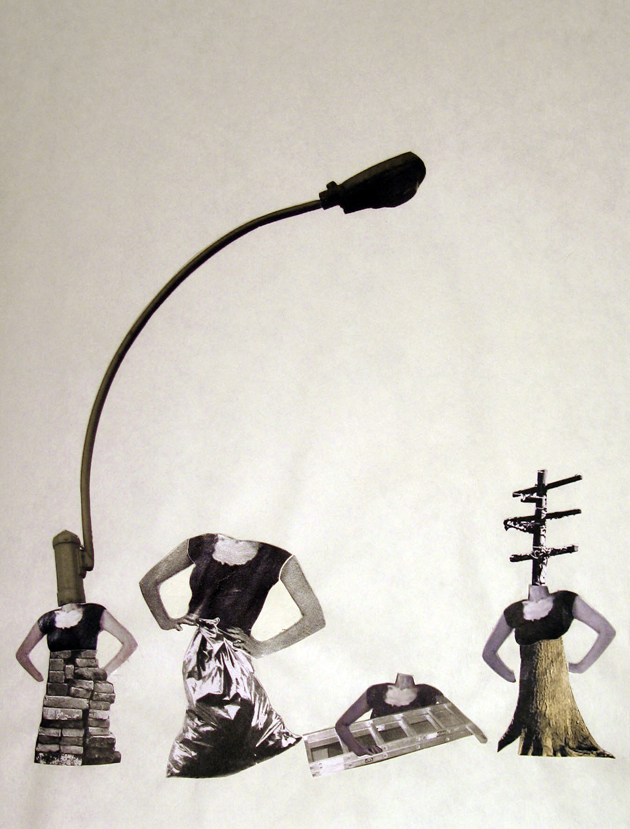
Ken Layne
Superstorm Sandy turned climate change from something vague and distant involving polar bears to the way we live on Earth now.
Most Important: Superstorm Sandy is what mattered most this year. Not because of the storm itself or the death and destruction it dealt from the Caribbean to New York, but because it finally turned climate change from something vague and distant involving polar bears to the way we live on Earth now.
Least Important: Unlimited corporate spending was supposed to “buy the election,” but instead it just showed the folly of throwing billions of dollars at a lost cause. The demographic and psychological changes in the American voter are permanent, which we’ll see in the coming years with aggressive gun control, expansion of national health care, and fair taxation of the wealthiest.
Ken Layne fired himself from Wonkette and now writes for The Awl.
Tom Scocca
The mute, mangled Ferrari, in a totalitarian kleptocracy, was both obviously significant and cryptic.
Most Important: It was almost not a story at all. That was the clue: On a late, late night in March, a black Ferrari had crashed on Beijing’s Fourth Ring Road, torn to bits, the driver killed, and—nothing. A total, echoless silence where details or explanation would go, a peculiarly Chinese silence, the silence into which dissidents and riots and certain episodes of history vanish. The mute, mangled Ferrari, in a totalitarian kleptocracy, was both obviously significant and cryptic. Nearly six months went by before a story abruptly emerged, an amazing parable of decadence and corruption: a rolling high-speed supercar sex party, featuring two half-dressed women (Tibetan women, even), driven by the young son of the right-hand man of President Hu Jintao. And then two months after that, the story behind the story behind the silence—the new ruling Politburo Standing Committee, unveiled weeks later than expected, was dominated not by the allies of the outgoing President Hu, but by those of his predecessor, Jiang Zemin, victorious in Communist Party infighting after the scandal. When the car skidded off the highway in the dark, the political future of 1.3 billion people veered in a whole new direction.
Least Important: The first presidential debate—or, specifically, the reaction to the first presidential debate—stands now as a monument to meaninglessness, on the site where the punditocracy made its Pickett’s Charge. Away on the high ground stood the wonks, fortified by the polls, which said that a competent and popular incumbent was organizing enough votes in enough states to win re-election, and that he had been doing so all along. A mile apart from them were the horse-racers and mythmakers and the outright partisan merchants of bullshit, spyglasses out, looking for a Narrative Moment that would turn the Momentum of the election. There! Barack Obama, sluggish and uninspired, allowing a bright-eyed Mitt Romney to batter him with “zingers” and pitying remarks and weird brazen falsehoods. Forward! The president had destroyed himself on live TV, his panicking supporters said. Romney had unmasked Obama’s weakness and proven himself a great statesman, the Republican operatives said. The race had turned completely, the politics-for-politics-sake experts said. And on they came, in a noisy and ferocious assault, all the way up to Election Night, when everything happened exactly as the cold-blooded wonks had said it would.
Tom Scocca is the managing editor of Deadspin and the author of Beijing Welcomes You.
Rosecrans Baldwin
What can I say, this was a very angry year for me.
Most Important: Newtown. My family lives in southern Connecticut, my mother is a schoolteacher. I’m finding I can’t really talk about it in public, I get so angry. For now I’m sticking with the Onion headline: “Fuck Everything, Nation Reports.”
Least Important: The presidential election. I’m being a little facetious, but there was absolutely nothing, nothing, in the debates or policy discussions that had to do with the environment, and that’s infuriating. I’m glad my guy won so he can pick some Supreme Court Justices. But Capitol Hill can go fuck itself. What can I say, this was a very angry year for me. Fuck 2012—I’m thrilled to see it in the rearview mirror.
Rosecrans Baldwin is a co-founder of The Morning News. He is the author of a memoir, Paris, I Love You But You’re Bringing Me Down, and a novel, You Lost Me There.
Natasha Vargas-Cooper
It was a peek into the corrosive and dominant ideology of the Republican Party.
Most Important: I’m an American so the first thing that comes Romney’s 47 percent quote during the election. The softline that Romney revealed “he was out of touch” by diagnosing 47 percent of the country as parasitic is not why the story was so important. It was a peek into the corrosive and dominant ideology of the Republican Party. But, you know, on May 14, in Mexico, 23 people were slaughtered by a drug gang, nine of them were strung up from a bridge and the other 14 were decapitated. It seems like Mexico is reaching a failed-state flashpoint over the drug war. Pretty significant.
Least Important: It was definitely the least important but totally my favorite: K. Stew’s cheating scandal. I think it’s important for young Twilight fans to know that most 22-year-old girls cheat on their boyfriends, even if they are Robert Pattinson.
Natasha Vargas-Cooper is the author of Mad Men Unbuttoned.
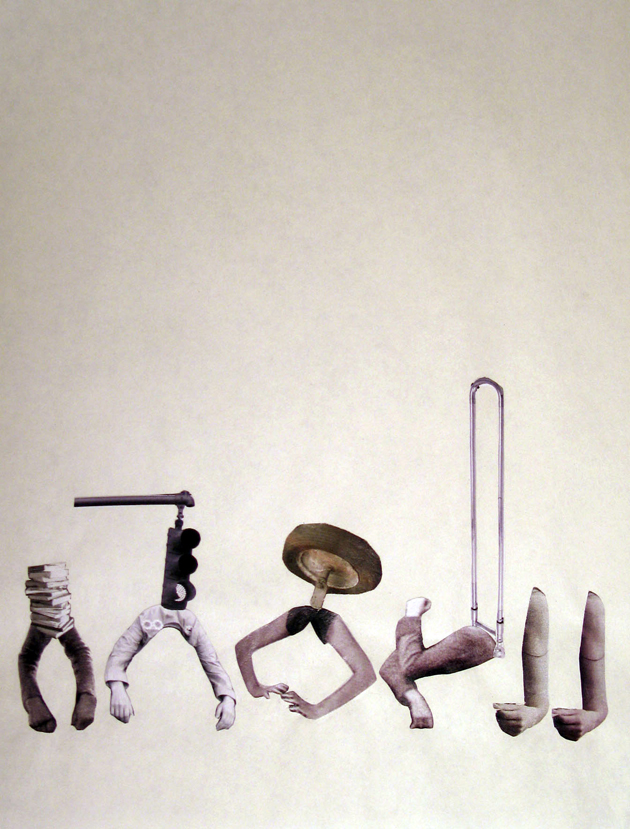
Michelle Dean
But it did seem, for a second, like people were actually thinking about what kind of country they wanted to live in.
Most Important: It is terribly morbid, and comes so late in the game it may just be looming larger by dint of proximity but: There’s something about Newtown that shook something loose in the country. And it was a thing that I’d long ago given up hope on. I don’t think we’re on the verge of anything like what I’d personally want to see in gun policy, of course. This is not a revolutionary moment. But it did seem, for a second, like people were actually thinking about what kind of country they wanted to live in, and saw guns in the way of that. It was only a minute’s reflection, maybe, but that was still twice as long as it’d ever been before.
Least Important: Philip Roth’s “retirement.” Honestly, I think he says things like this just to inspire a new avalanche of flattering commentary.
Michelle Dean is a journalist and essayist.
Andrew Womack
As president-elect he would be at his meekest, unlikely to dare alienate his NRA-approved allies.
Most Important: I was torn between Newtown and Obama’s reelection. When you keep up with the news, you know it’s easy to become cynical. We can look at the election outcome and say, well at least that turned out like we’d hoped. Then cynicism creeps in, and we can doubt it ever really mattered who won—either way, things would turn out to be no different. But Newtown changes all that. I do believe that, had Romney won, the future of gun control would stay the course. As president-elect he would be at his meekest, unlikely to dare alienate his NRA-approved allies and suggest anything approaching “meaningful action.” If real change can happen here, it wouldn’t if Obama had lost.
Least Important: The Mayan apocalypse. We dedicate time and attention to something that doesn’t exist, yet we continue to ignore climate change. If we want an apocalypse so badly, just wait.
Andrew Womack is a co-founder of The Morning News.
Maria Bustillos
The mashing of the “record” button at a political fundraiser.
Most Important: The mashing of the “record” button by a cater-waiter in Boca Raton at a political fundraiser in May.
Least Important: The least important (but most enjoyable) was Marilyn Hagerty’s visit to The Olive Garden, and her subsequent “masterpiece of polite restaurant criticism,” as Matt Creamer styled it in AdAge.
Maria Bustillos is a Los Angeles-based writer.
Jen Doll
Is Boo’s impossibly viral cuteness just a result of Facebook-ternalism?
Most Important: 2012 was full of groundbreaking, shape-shifting events, good and bad. The most recent, of course, was the tragic shooting at Sandy Hook Elementary in Newtown, Conn. This is an incredibly important news event because it means we absolutely must change the conversation about guns and gun violence as it has continued to exist for so long in this country, and make concerted, real efforts toward preventing such an atrocity from ever happening again. What we will do about guns in 2013 is a pivotal, monumental issue for the U.S.
In happier important news, let’s not forget that this was a big year for gay marriage, with Obama finally saying he supports same-sex couples’ right to marry, and with the public passing ballot measures to make same-sex marriage legal Washington, Maryland, and Maine. Yay for that.
Least Important: Boo the Dog “lied,” or if he didn’t lie, exactly, maybe he wasn’t exactly what or who he purported to be! His owner works for Facebook, it came out this year, to the astonishment of…some. Is Boo’s impossibly viral cuteness just a result of Facebook-ternalism? Oh, noes! Also, House Hunters, a reality TV show that’s repeatedly been called out for being not all that real (those people may not really be buying those houses in those circumstances, or perhaps they already bought them!) was again called out for the crime. As truly unimportant as these disclosures were, they made for fun news—I love fun news, and I love Boo the Dog and House Hunters even if they aren’t exactly what they seem—so perhaps they were sort of “important” after all, if only for our amusement.
Jen Doll is a senior writer at The Atlantic Wire.
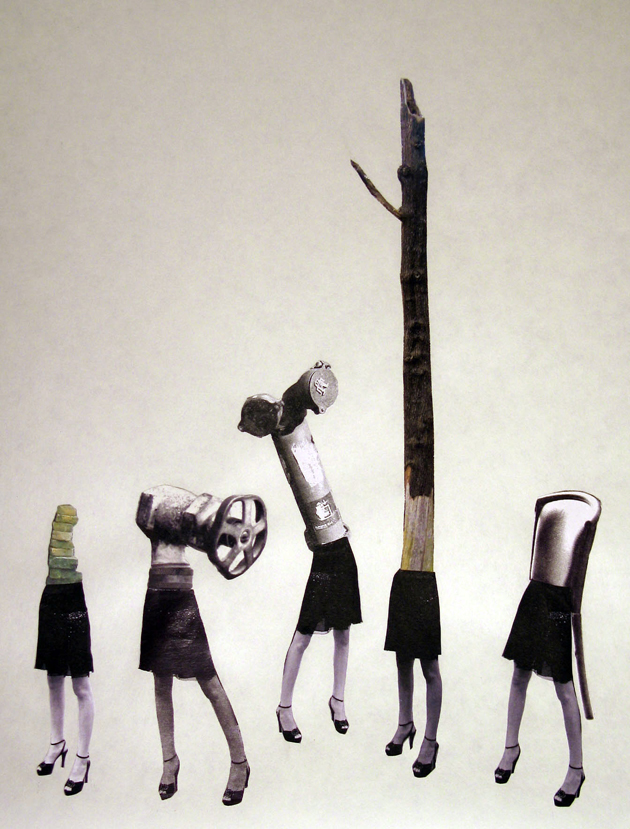
Ken Silverstein
Maybe mass murder is too high a price to pay for cheap clothing and the right to bear assault weapons?
Most Important: Nationally the school killings in Newtown; internationally the pair of fires at apparel plants in Pakistan and Bangladesh, which killed more than 400 workers combined. (The tragedy in Pakistan alone killed about 300 workers, the biggest factory death toll in the history of capitalism.) Maybe mass murder is too high a price to pay for cheap clothing and the right to bear assault weapons?
Least Important: The U.S. elections. After nearly two years of empty campaign blather and at a cost of $6 billion, voters kept Obama in the White House (where he is already preparing to cave on the fiscal cliff negotiations) and left Democrats in control of the Senate and Republicans in control of the House. Truly an elaborate ceremony full of pomp and circumstance, yet signifying nothing.
Ken Silverstein is a contributing editor at Harper’s.
Richard Brody
The treaty would have been a betrayal of those who take grave risks to seek, on the internet, an elusive haven of free discourse.
Most Important: Obviously the election—had Mitt Romney won and the Republican Party reclaimed the Senate, the country would likely have faced a terrifying, history-changing right-wing reaction. But another, less publicized event of vast moment was the rejection, by the United States (as well as Great Britain, Australia, and Canada) of the United Nations’ recently proposed treaty regarding internet governance, which would have granted such censorious regimes as those of China and Iran a hand in control of internet use beyond the confines of their own domestic firewalls. The symbolism of the rejection is as important as its substance: the treaty would also have been a betrayal of those who, in such places, take grave risks to seek, on the internet, an elusive haven of free discourse.
Least Important: The Oscars, which function in a giddy parallel fantasy world of cinematic values. The Academy’s distance from the cinematic street is made all the more apparent by the ever-increasing quality (as well as quantity) of film criticism, which, thanks to online publication and discussion, has risen to meet the artistic richness of the movie world that its writers experience.
Richard Brody is the movies editor at the New Yorker.
Lauren Groff
There were tiny monkeys in sheepskin jackets in IKEA, but they were all sold out by the time I got there.
Most Important: Two things struck a blow against the dark and rising tides of cynicism this year: the Summer Olympics in London, and the re-election of Barack Obama as president. The first let out worldwide tensions in a series of comparably innocuous wargames, with the considerable side-benefit of the constant eye candy-slash-parade of the most fit and beautiful humans on the planet; the second was a heartfelt affirmation that America believes in hope, community, science, and the necessity of taking care of our most vulnerable citizens.
Least Important: Based on what I gleaned from my Twitter feed, there were tiny monkeys in sheepskin jackets in IKEA, but they were all sold out by the time I got there, and the worker I asked about them said something under his breath in Swedish that sounded a lot like a big-time cuss in English, then balled up his apron and threw it into my plate of lingonberry pancakes before stalking off. All this to say: You can’t trust Twitter’s coverage of important events.
Lauren Groff is the author of Arcadia.
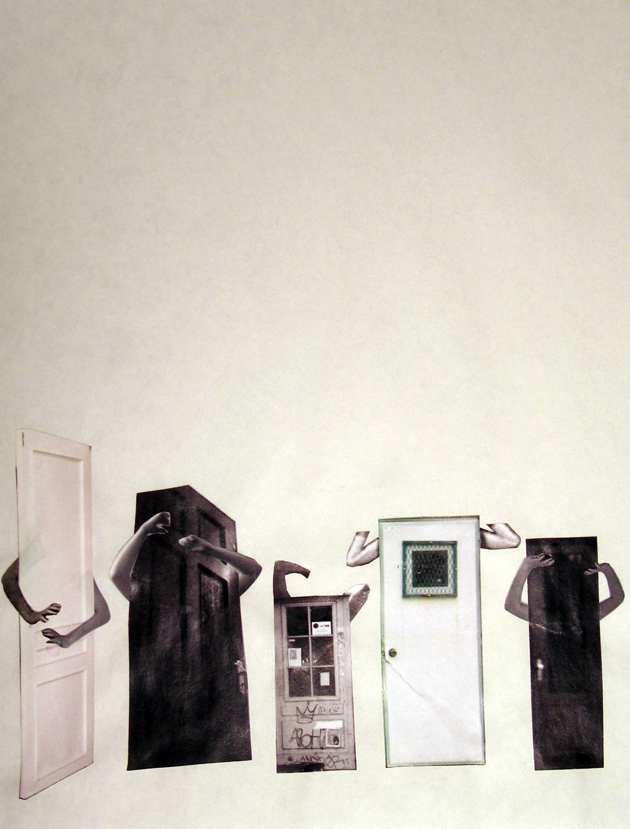
Roxane Gay
Very little will change insofar as this country’s political gridlock is concerned.
Most Important: The re-election of Barack Obama and what that might mean for dignity, civil liberties, healthcare, and yes, even these ideas of hope and change Obama has used as guiding principles in his political ambitions.
Least Important: The re-election of Barack Obama because very little will change insofar as this country’s political gridlock is concerned. Our Congress is too mired in a culture of petty partisanship for much of anything legislatively productive to be accomplished.
Roxane Gay is a writer and editor living in the Midwest.
Maura Johnston
The gossip press delighted in trying to take her down the way they did with Lindsay, and Britney, and so many others, and for what?
Most Important: Obama’s re-election, if only because keeping Paul Ryan’s loony ways as far away from the Presidency as possible is crucial to my quality of life (read: desire to not become an Offred).
Least Important: I would say any of the affairs had by celebrities, but the way they percolated around the gossipsphere said way too much about how 2012’s gender politics are completely fucked—probably even more than the absurd Republican statements about reproductive organs’ pregnancy-prevention superpowers. I don’t much care about Twilight and I didn’t even see The Runaways, but something about the way Kristen Stewart was portrayed as a “trampire” over her cheating scandal really stuck in my craw; the gossip press delighted in trying to take her down the way they did with Lindsay, and Britney, and so many others, and for what? Having relationship problems? The attempts to brand her with a scarlet A were pretty nauseating even from the far, far sidelines, and that she basically gave these idiots an implied middle finger every time she went out in public put me on her team. (Although I probably won’t see Breaking Dawn II in the theater.)
Maura Johnston is a writer, editor, and instructor at the New York University Clive Davis Institute of Recorded Music.
Craig Mod
The ecosystem here continues to be one of our country’s most precious gifts.
Most Important: Elon Musk—the well-spoken, South African, humble geek-founder of Tesla and SpaceX—said crazy things, like, “We’re going to Mars.” And not just, “We’re sending a probe,” but, “We’re going to get people to Mars for a reasonable amount of money. Oh, and terraforming shouldn’t be too tough, either.”
Statements like this are normally easy to laugh off. The thing is, this guy is executing. And executing against a near-infinite wall of naysayers. Cars, energy, and rockets. There’s an irrationality powering his industry choices but a wild rationality powering all his words and actions. And because of this, he’s become something of an inspiration for geeks the world over.
It’s hard not to compare him to other, floppy-haired billionaires and think: Sweet Jesus we need more Musks. How can we clone him? How do we produce an army of brilliant, laughably rich people with visions extending well beyond our own life horizons, working on hard problems, taking incredible risks, and executing methodically?
The Elon story also represents the best of America at a time when it’s easy to be saddened by our country. This is still one of the few places in the world where an outsider is able to arrive, be educated, find proper talent and funding and legal structure, innovate audaciously, reap incredible rewards for that innovation, and then go on to build even more audacious things. It’s the story of Silicon Valley, and the ecosystem here continues to prove to be one of our country’s most precious gifts.
Least Important: The closing of The Daily. The only surprise to anyone watching was how long it was allowed to bleed.
Craig Mod is a writer, designer, and publisher.
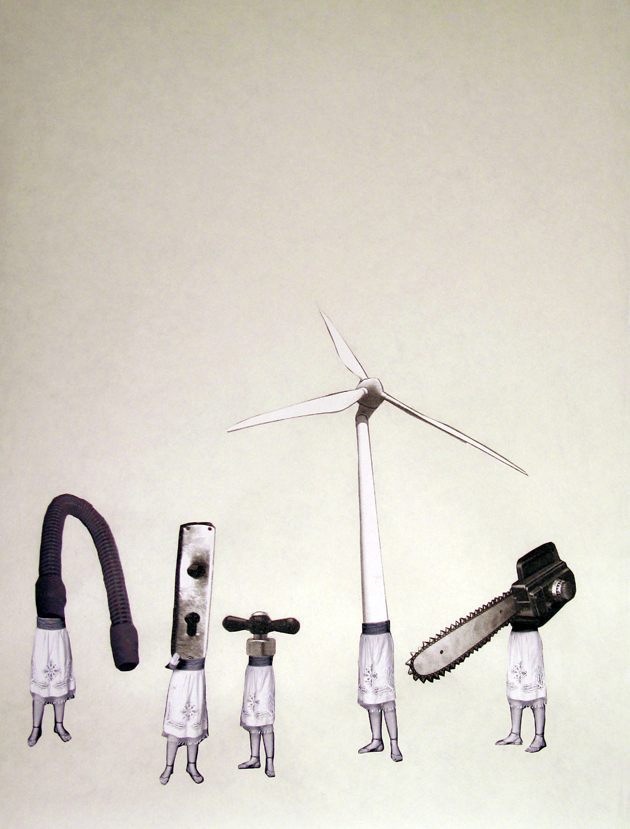
Adrian Chen
Constant internet use has wrecked my brain to the point that I can’t remember anything that took place longer than a week ago.
Most Important: The most important event of 2012 was when Instagram changed its terms of service earlier this week. And I’m not just saying this because constant, constant internet use has wrecked my brain to the point that I can’t remember anything that took place longer than a week ago.
Least Important: The least important event of 2012 was when I ordered takeout Thai food last Wednesday for dinner. Again, I am not just saying this because of the fact that my stunted, Twitter-addled mind has blurred most of the past year into a gray smear of vaguely depressing but unremarkable moments.
Adrian Chen is a staff writer at Gawker.
Liz Entman
The discoveries it makes on the red planet will bring us several steps closer to another giant leap for mankind.
Most Important: The successful landing of the Curiosity rover on Mars was not only awesome to watch, but the technology that went into building it, landing it, and operating it, and the discoveries it makes on the red planet will bring us several steps closer to another giant leap for mankind—a manned mission to Mars. The spectacle was also important for building public support for NASA as it shelved what was probably its most relatable project, the shuttle program. It seems to have worked—Curiosity’s Twitter has more than a million followers.
Least Important: Considering Europe invented public topless sunbathing, it was never entirely clear why paparazzi shots of the Duchess of Cambridge engaging in that perfectly socially acceptable practice in the privacy of her vacation villa could be worth either the euros that paid for them or the brouhaha that erupted afterward. (This editor’s aside: Kudos to Kate for gracefully weathering more violations of her privacy in her first year as a royal than she probably ever imagined.)
Liz Entman is an editor at The Morning News.
Kevin Nguyen
At its best, the internet allows us to be skeptical; at worst, it makes us cynical.
Most Important: Some have remarked on the rise of sincerity on the web, but I’d argue it’s a symptom of a broader cultural trend. Look at Frank Ocean. Arguably 2012’s most important album, both critically and commercially, Channel Orange isn’t an influence on sincerity as much as it is a glorious product of it. Ocean’s debut full-length possesses an admirable bravery in its emotionally honest exploration of broken relationships and confused identity. Ocean himself dwells in ambivalence. Sincerity here is about internal conflict; he comes across as a man saying things out loud in hopes to make sense of them. At its best, the internet allows us to be skeptical; at worst, it makes us cynical. We fear sincerity when we’re unsure if it lacks self-awareness. But in Channel Orange’s strength of production and songwriting, we find Ocean emoting with as much earnestness as he does confidence. He proves that sincerity, wielded in the hands of the right person, can be a connective, powerful thing.
Least Important: Tim Riggins pulled a consecutive hat trick on films that would effectively be nails in the coffin for his film career.
Kevin Nguyen is a founding editor at the Bygone Bureau.
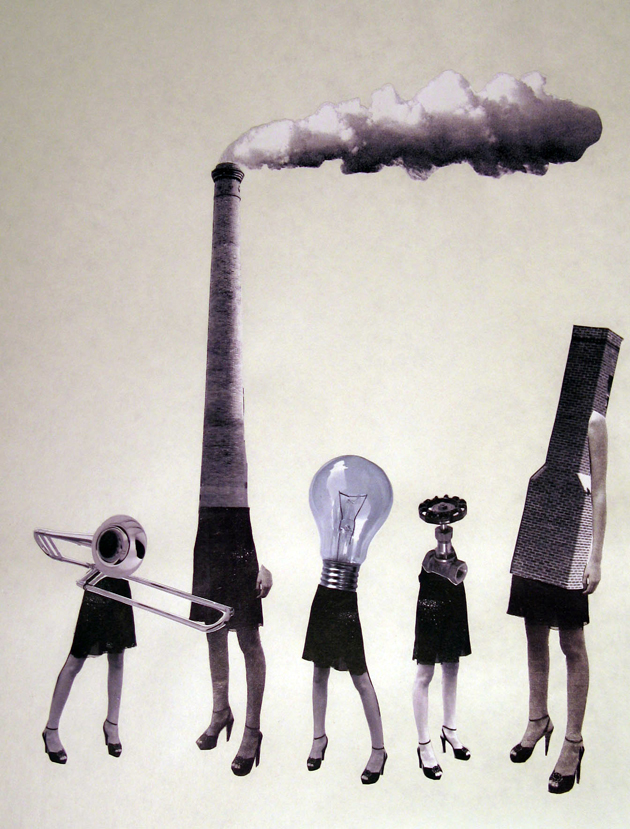
Fred Benenson
Obama won through the support of diverse Americans voting against the socially conservative values of the Republican party.
Most Important: The GOP lost. It wasn’t just that Obama won—which was great—it was that he won through the support of diverse Americans voting against the socially conservative values of the Republican party. Runner up: The Supreme Court agreeing to hear two cases on gay marriage.
Least Important: Bravo produced two reality TV shows about startups.
Fred Benenson is a data engineer at Kickstarter.
Nozlee Samadzadeh
Neil deGrasse Tyson has swooped in to gently, succinctly remind us of our pettier moments.
Most Important: It’s not an easy job, but it’s an important one—when everything at the human scale appears to be going wrong (magnetic pole reversal, the presidential debates, the vast number of blog posts on the Mayan apocalypse and the monthly traffic quotas that caused them) astrophysicist Neil deGrasse Tyson, acting as America’s national conscience, has swooped in to gently, succinctly remind us, in 140-character increments, of the cosmic insignificance of our pettier moments.
Least Important: I’m loath to legitimize this with the title, but in the sense of not having value, the idea of “men’s rights” is unimportant regardless of the year. The fact that “maleness and whiteness are commodities in decline”—to use a phrase from a New York Times op-ed I won’t link to here—is anything but cause for alarm.
Nozlee Samadzadeh is an editor at The Morning News.
Miranda Popkey
I’ve wondered who, exactly, Swift is swearing she is never, ever, ever, getting back together with.
Most Important: In my own little corner of the internet, the rebirth of Sady Doyle’s Tumblr was the Most Important Event of the year. Whether she’s gently mocking her younger self, engaging in fearless self-examination, or weighing in on Liz Lemon’s wedding, the Tiger Beatdown founder and staff writer for In These Times writes with logic, humor, and honesty. She’s engaging in a crucial conversation about (among other things) mental health, feminism, and media criticism that has broadened my own horizons more than semesters of theory in college ever did.
Least Important: I’ve spent a lot of time singing along, very loudly, to Taylor Swift’s Red (“I Knew You Were Trouble” and “Stay Stay Stay” are particular favorites). I’ve wondered, along with the rest of America, who, exactly, Swift is swearing she is never, ever, ever, getting back together with. Nevertheless: I’m nominating the album, or rather the frenzied obsession with it, as the Least Important Event of 2012. I believe that Swift herself—a wealthy, powerful woman who seems very much in control of her musical career—can be seen through a feminist lens whether she calls herself a feminist or not. I also believe, per Sady Doyle, that though there’s a great deal of value in “a young woman who’s fearlessly claiming her right to express anger,” it’s problematic that “female self-acceptance is only all right if you have a specific kind of female self.” But mostly, I wish that we could devote more of our time to discussion of female artists not named “Taylor Swift.”
Miranda Popkey is on the editorial staff of Farrar, Straus and Giroux.
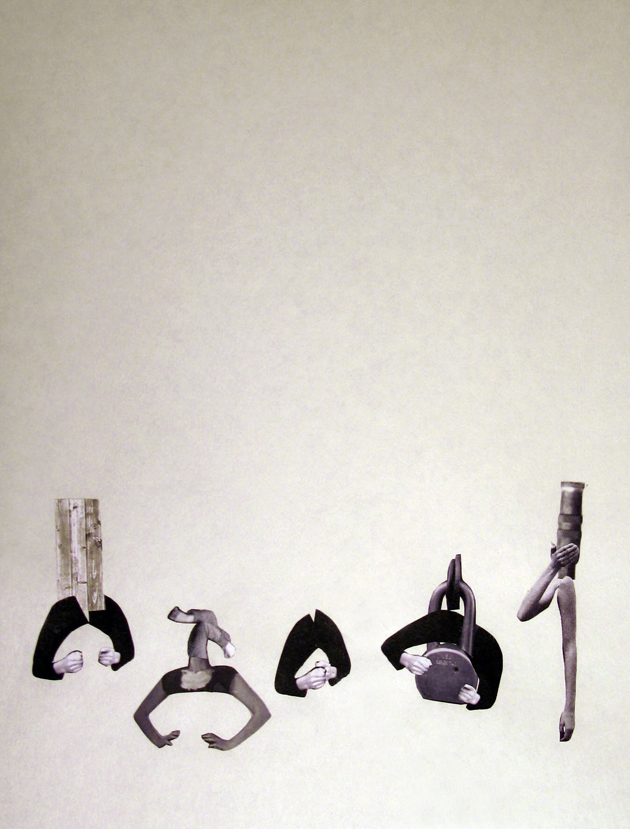
Lauren Daisley
Congratulations! You now know what it feels like to be a working actor.
Most Important: The people of Missouri reinforced with their votes that our country can do better than electing officials who base any of their governing decisions on the notion that if a woman gets pregnant from rape it’s because she secretly enjoyed the sex. Voting out Todd Akin acknowledged that it’s possible to see the cutting wrongness of his “legitimate rape” theory without denying the wonder of human life: Akin’s comment proved profoundly objectionable to enough voters on both sides of the abortion issue. Though we’re continually fighting for more traction, the footing of women’s rights is mercifully still in the 21st century.
Least Important: Yes, Instagram has said it’s going to let its advertisers use your photos, likeness, and username with no compensation to you. (Congratulations! You now know what it feels like to be a working actor.) I agree with the Collective Outraged that this is policy is crap. I’m glad people are objecting and that Instagram has been forced to revise its plans at least a little. But nothing’s new here. From the get-go, social media has been giving us all a small taste of celebrity, minus the wealth: Strangers know and profit from our personal lives, whether real or perceived. The shock that accompanied Instagram’s privacy policy seems to indicate that we all don’t really fully get that yet.
Lauren Daisley is a contributing writer at The Morning News.
Richard Lawson
Was it privilege, really? Was it a generational thing, actually?
Most Important: As an entertainment writer, the most important, or at least (initially) most interesting story of the year was the arrival of Lena Dunham’s HBO show Girls. People really, really liked talking about Girls and Lena Dunham this year. This may be a cynical metric, but it has to have been the most important entertainment story of the year by sheer measure of posts generated alone. Think about all the layers that sprung out of this half-hour mini-phenomenon: there was the initial praise, then the backlash, then the backlash to the backlash, then the meta spiraling out into conversations about the conversation, and so on and so on. And it kept on giving, first in the early winter and then, months later, just as we were almost done with 2012, the conversation popped up again when Dunham sold an advice book proposal for $3.7 million. The Dunham/Girls conversation touched, or touches, on lots of timely things; economics, millennial listlessness, gender, the internet. So it mattered, it did. You may have gotten sick of it, we may all have gotten sick of it eventually, but it was the best and maybe most elevated public chatter we had about a piece of art (yes, art) this year.
Least Important: The least important story of the year, as an entertainment writer, was the whole Girls/Lena Dunham business. What were we even talking about, really? Seemed like a bunch of people were eager to claim the next big thing as their own, so they jumped on the bandwagon early on. Then other people wanted to be the first ones to hate the show and by extension Dunham, so they went around trying to pull people off the wagon, or at least pointing at them and shaking their heads. And so on and so on until everyone forgot what we were talking about in the first place. Was it privilege, really? Was it a generational thing, actually? Or was it mostly that successful women, especially successful young women, get a specific kind of scrutiny that always seems to wind up suggesting that the success was handed to them or that they’re not really that good after all, etc.? Girls is a good show, even if it’s not matched to your taste, and Lena Dunham is smart and accomplished in her own right, even if she’s the daughter of two artists most of us had never heard of until we’d heard of Lena Dunham. This was internet palaver at its most needling and nitpicky, it’s most mypoic and navel-gazing. I’m a twenty-something (barely) New York media person and even I found the conversation too self-referencing. All that needed saying was that Girls is a good show if perhaps not everyone’s cup of tea—a cup of tea that only a small handful of Americans have even tried—and then we could have moved on. But we didn’t. Oh how we didn’t. Here I am right now, not moving on.
Richard Lawson is a senior writer at The Atlantic Wire.
Mike Dang
Why did we spend so much time eating sad lunches at our work desks?
Most Important: The re-election of President Barack Obama was so critical because it set the direction for where our country is heading, which, among other things, includes the legalization of gay marriage, and gun control legislation in light of the devastating shooting in Newtown, Conn. Our country still has a lot of work to do in terms of reconciling issues of social and economic inequality, and providing affordable access to healthcare for everyone, but I believe our president understands the work that has to be done, and now that he’s not up for re-election, is in a better position to get that work done.
Least Important: There were a surprising number of words dedicated this year to the idea that the world was going to end in 2012 (and yes, I was also guilty of this). Did any of us really believe the world was going to end? If so, why did we spend so much time eating sad lunches at our work desks? NASA spent way too much time this year telling people the world wasn’t going to end, and not enough time figuring out how we’ll build colonies on the moon or Mars when Earth is no longer a viable place to live.
Mike Dang is a co-editor of The Billfold.
Carolyn Kellogg
The crazy mixed-up publishing industry can work—and turn a terribly written bondage fantasy into bonuses for an entire company.
Most Important: Because books are my beat, I’m going to say the most important literary event of 2012 was 50 Shades of Grey. That is not to say that it heralds a new era in self-publishing, or that it proves that it takes a traditional publisher to made a runaway (13 million and counting) bestseller, or that there’s a new sexual awakening in suburban America. It’s important because it shows that despite its doom being foretold, the crazy mixed-up publishing industry can work—and turn a terribly written bondage fantasy into $5,000 bonuses for an entire company.
Least Important: Curators. (Actual museum curators exempted.)
Carolyn Kellogg is a staff writer at the Los Angeles Times.
Andrew W.K.
The world didn’t end.
Most Important: The year itself, and the fact that the world didn’t end. For many years, there had been a lot of tension surrounding the end of the world taking place in December 2012. We’re still here and we’re still partying.
Least Important: The price of certain types of horse meat and fish mash used in pet foods fluctuated slightly, at times by as much as 0.02% over the course of an hour. Pork bellies also saw some extremely typical price changes. Regardless of all this, I continued partying.
Andrew W.K. is a performer and a co-owner of Santos Party House.
